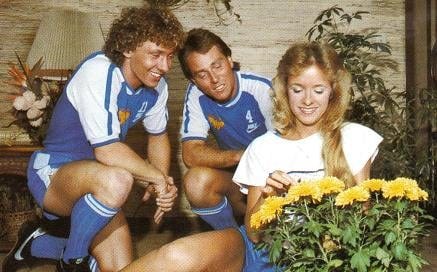Save Your Nicholls [Part 3/3]
Terry Nicholl, Roy Turner, Bill Kentling, and Steve Shaad build a culture of innovation.
Terry Nicholl continued to make himself conspicuous when he landed in Wichita in 1981, but this time off the pitch. Though a solid performer, he was a member of the supporting cast. While Coach Turner told stars like Andy Chapman or Erik Rasmussen to go out there and be creative, he told Nicholl to, “Go help ‘em!”
Normally, fans gravitate to the stars. S…
Keep reading with a 7-day free trial
Subscribe to MISL 1980s: The Story of Indoor Soccer to keep reading this post and get 7 days of free access to the full post archives.



